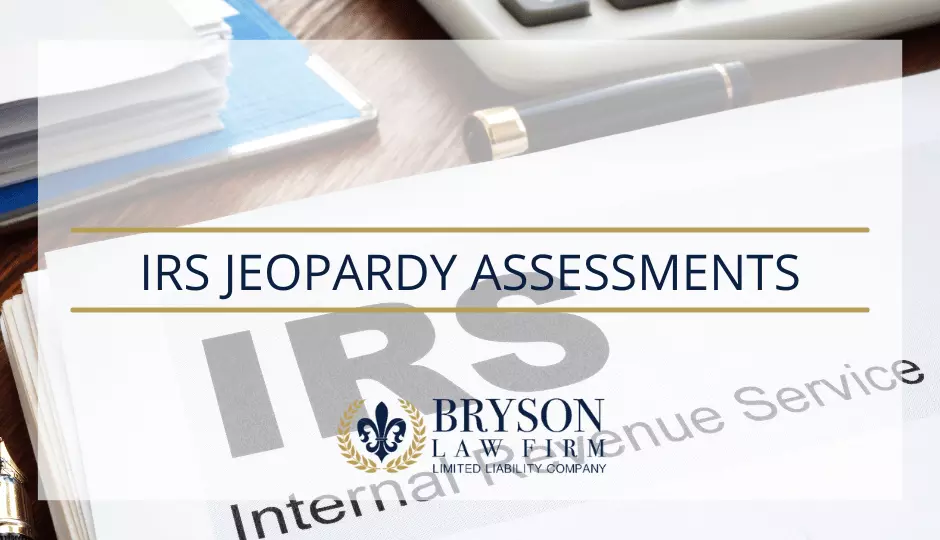Did you know that the IRS can make a “Jeopardy Assessment” or initiate a “Jeopardy Levy” under IRC 6861 and IRC 6862 when they determine that the collection of tax is in jeopardy under normal IRS procedures?
Under Internal Revenue Code 6861, “if the Secretary believes that the assessment or collection of a deficiency, as defined in section 6211, will be jeopardized by delay, he shall, notwithstanding the provisions of section 6213(a), immediately assess such deficiency (together with all interest, additional amounts, and additions to the tax provided for by law), and notice and demand shall be made by the Secretary for payment thereof.”
The IRS has standard procedures for assessing a tax balance due against a Taxpayer. The assessment is a determination of how much the Taxpayer owes to the IRS. Generally, this happens when a Taxpayer files taxes. However, if the Taxpayer does not file a return, the IRS can determine the tax liability through a Substitute for Return. Additional assessments also take place when the IRS identifies unreported income, audits unsubstantiated expenses, etc. It is in these situations that Jeopardy Assessments can be made. After an assessment has been made, the IRS will then send a Notice and Demand for Payment. After a series of IRS notices are issued, the Taxpayer can then be placed into collections.
The Jeopardy Assessment makes all tax, penalties, and interest become immediately due and allows the IRS to begin collections on the balance due through Jeopardy Levies, even if all proper notices and time to appeal have not yet passed.
Before making an assessment or initiating collections, notice and waiting periods (often allowing for appeals and protests) typically must occur.
The IRS can deviate from these procedures when they identify that the potential for collections is in jeopardy. This can happen when an Auditor or Collections Agent identifies that the Taxpayer is concealing assets to make collections difficult, when there is other criminal activity at issue such as in cases involving narcotics or illegal wagering, and/or when the IRS believes a Taxpayer may flee the country, etc.
According to the IRS Internal Revenue Manual sections 1.2.1.5.27 and 5.1.4.2, they are to be used sparingly and prudently – care must be taken to avoid excess and unreasonable assessments. The IRS places the “highest priority of handling within and between the responsible functions” due to the urgency involved in Jeopardy Assessments.
IRS jeopardy actions can be appealed, and Taxpayers do have the opportunity to dispute whether the collection of tax was in jeopardy. Jeopardy Assessments and Levies are extraordinary IRS measures – Taxpayers facing these actions should contact a Tax Attorney and seek legal representation without delay. Bryson Law Firm, LLC is here to help.























